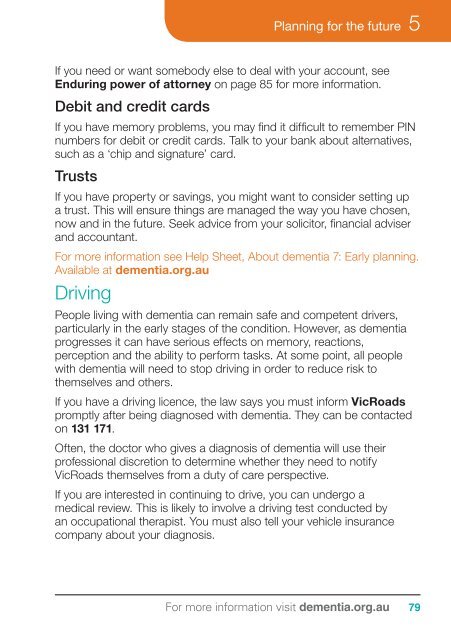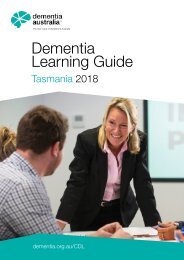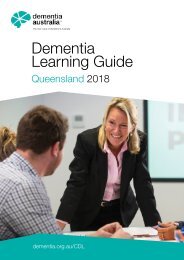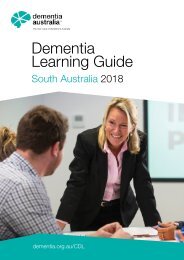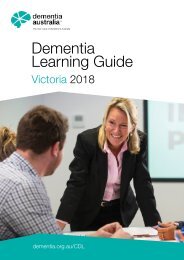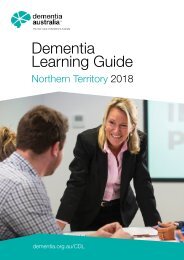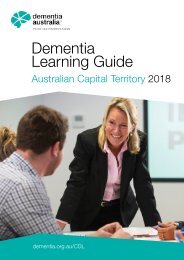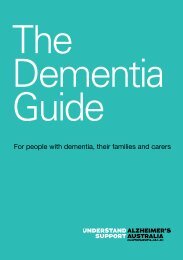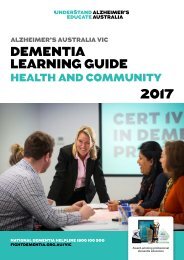Dementia Australia | The Dementia Guide
The Guide will also be used by the family and friends of someone with dementia, as it will contain information for anyone taking on a caring role. It will help people to understand more about dementia and the emotional impact of a diagnosis, the available drug treatments, and support and services that are available. It will include information about living well with dementia and about making plans for the future.
The Guide will also be used by the family and friends of someone with dementia, as it will contain information for anyone taking on a caring role. It will help people to understand more about dementia and the emotional impact of a diagnosis, the available drug treatments, and support and services that are available. It will include information about living well with dementia and about making plans for the future.
You also want an ePaper? Increase the reach of your titles
YUMPU automatically turns print PDFs into web optimized ePapers that Google loves.
Planning for the future 5<br />
If you need or want somebody else to deal with your account, see<br />
Enduring power of attorney on page 85 for more information.<br />
Debit and credit cards<br />
If you have memory problems, you may find it difficult to remember PIN<br />
numbers for debit or credit cards. Talk to your bank about alternatives,<br />
such as a ‘chip and signature’ card.<br />
Trusts<br />
If you have property or savings, you might want to consider setting up<br />
a trust. This will ensure things are managed the way you have chosen,<br />
now and in the future. Seek advice from your solicitor, financial adviser<br />
and accountant.<br />
For more information see Help Sheet, About dementia 7: Early planning.<br />
Available at dementia.org.au<br />
Driving<br />
People living with dementia can remain safe and competent drivers,<br />
particularly in the early stages of the condition. However, as dementia<br />
progresses it can have serious effects on memory, reactions,<br />
perception and the ability to perform tasks. At some point, all people<br />
with dementia will need to stop driving in order to reduce risk to<br />
themselves and others.<br />
If you have a driving licence, the law says you must inform VicRoads<br />
promptly after being diagnosed with dementia. <strong>The</strong>y can be contacted<br />
on 131 171.<br />
Often, the doctor who gives a diagnosis of dementia will use their<br />
professional discretion to determine whether they need to notify<br />
VicRoads themselves from a duty of care perspective.<br />
If you are interested in continuing to drive, you can undergo a<br />
medical review. This is likely to involve a driving test conducted by<br />
an occupational therapist. You must also tell your vehicle insurance<br />
company about your diagnosis.<br />
For more information visit dementia.org.au 79


